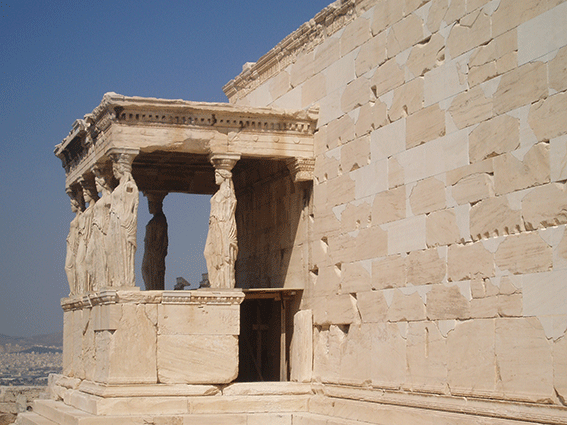The Roman Empire was primarily a polytheistic civilisation, which meant that people recognised and worshiped multiple gods and goddess. The main god and goddesses in Roman culture were Jupiter, Juno, and Minerva.
However, as late as the Roman conquest of Greece during the last two centuries, the Romans adopted many mythic narratives directly from the Greeks while preserving their own Roman (Latin) names for the gods. As a result, the actions of many Roman and Greek deities became equivalent in storytelling and literature. For example, the Roman sky god Jupiter or Jove became equated with his Greek counterpart Zeus; the Roman fertility goddess Venus with the Greek goddess Aphrodite; and the Roman sea god Neptune with the Greek god Poseidon.
As Latin remained the dominant language in Europe during the Middle Ages and Renaissance, largely due to the widespread influence of the Roman Empire, during this period, mythological names almost always appeared in their Latin form. However, in the 19th century, there was a shift towards the use of either the Greek or Roman names. For example, “Zeus” and “Jupiter” both became widely used in that century as the name of the supreme god of the classical pantheon. The ancient Greeks from the very earliest times believed that gods sometimes came to earth in disguise in order to observe human behaviour and that a person could never take it for granted that the person they were speaking to was really mortal.
That ideology came to the fore when the apostles Paul and Barnabas visited the city of Lystra. The apostle Paul healed a lame man from birth and the man jumped up and began to walk around immediately. The crowds that saw this were immensely surprised and shocked at the miracle that was done. This made the people believe that Paul and Barnabas were actually gods. They started to call Barnabas Jupiter, a supreme god and Paul Mercurius (Mercury) after the god of translators and interpreters. Mercurius was the most clever of the Olympian gods, and served as messenger for all the other gods. They called Paul this because he was the chief speaker.
They believed that they were gods and started to worship them. Including the chief priest of Jupiter who brought oxen and garlands of flowers to the main gate of their lodgings to make sacrifices unto them. They wanted to show devotion and worship to these ‘gods’ who were in their midst. However, the apostles were so shocked that they rushed to the gates to clarify that they were not gods, they were not divine beings so they tore their clothes in a sign of grief and ran amongst the people saying “Sirs, why do ye these things? We also are men of like passions with you, and preach unto you that ye should turn from these vanities unto the living God, which made heaven, and earth, and the sea, and all things that are therein:” from the book of Acts chapter 14 verse 15.
Although Paul and Barnabas could perform miracles and wonders, they knew that they were just mere men like those around them. The ability to do these things wasn’t from them but the power and Spirit of the living God through them did these wonders. The Living God endued them with power to preform these miracles and wonders to show forth His glory and power. Only God can heal a crippled man, or raise the dead to life, no mere human has this ability. Paul and Barnabas testified to the greatness of the true and Living God whilst at the same time pointed out the frailty and powerlessness of man. (P. Pilgrim pilgrimway101@yahoo.com)




